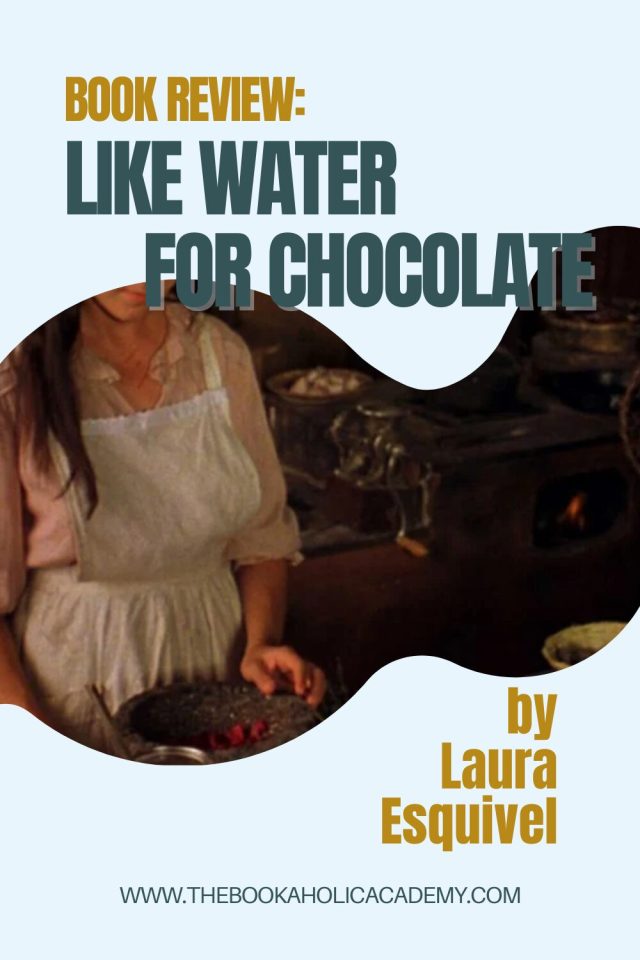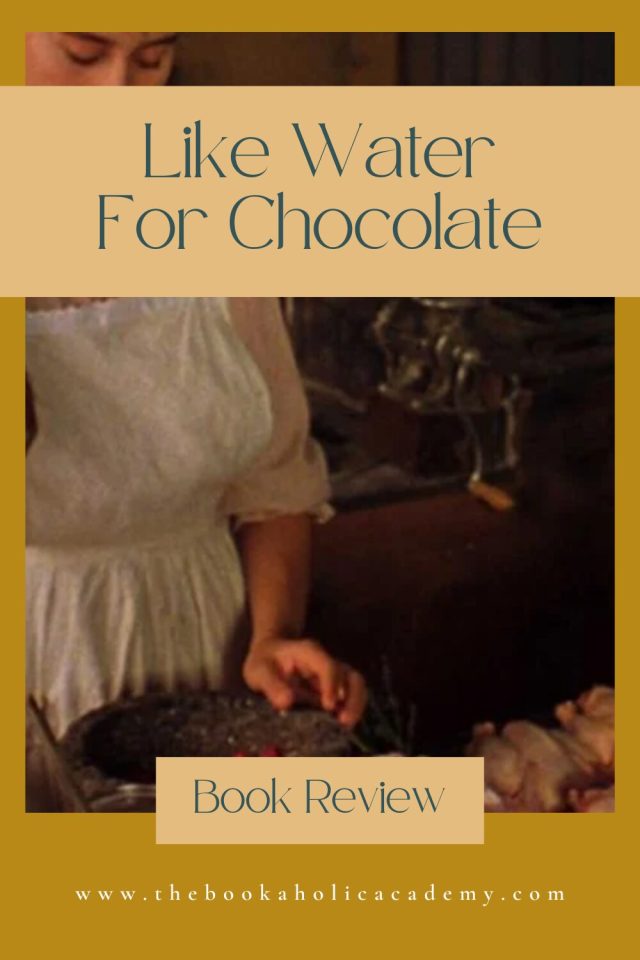Review: The Delicious World of Like Water For Chocolate by Laura Esquivel

Disclaimer
This post may contain affiliate links. I will make a small commission if you make a purchase through one of these links, at no extra cost to you. See full disclosure and disclaimer policy HERE.
If you’re a fan of sumptuous storytelling that blends love, food, and magic seamlessly, then Laura Esquivel’s “Like Water for Chocolate” is a must-read. This Mexican masterpiece takes readers on a sensory journey through the life of Tita De La Garza, whose culinary creations are imbued with her emotions, shaping the destinies of those who consume them. Let’s delve deeper into this enchanting tale that captivates the heart and tantalizes the taste buds.
Table of Contents
Plot Summary | Spoiler Alert |
The novel is set in early 20th-century Mexico, where we meet the De La Garza family at their ranch. Tita, the youngest daughter, is forbidden from marrying her true love, Pedro, as family tradition dictates that she must remain unmarried to care for her mother until her death.
As the story unfolds, we witness the remarkable connection between Tita’s emotions and her cooking. Each dish she prepares becomes infused with her feelings, influencing the moods and destinies of those who consume them. This magical aspect adds depth and intrigue to the narrative, elevating the role of food beyond mere sustenance.
Amidst the backdrop of Tita’s forbidden love and her culinary exploits, we also delve into the complex dynamics of the De La Garza family. From the tyrannical presence of Mama Elena, Tita’s domineering mother, to the support of her sisters Gertrudis and Rosaura, familial relationships play a central role in shaping Tita’s journey.
At its core, Like Water for Chocolate is a tale of love and rebellion. Tita’s unwavering devotion to Pedro fuels her defiance against societal expectations, challenging the norms of tradition and patriarchy. Through her acts of rebellion, Tita asserts her autonomy and seeks to carve out her own path to happiness.
Throughout the narrative, Esquivel explores the tension between tradition and modernity, particularly concerning gender roles and societal expectations. As Tita grapples with the constraints of tradition, she also embraces the liberating possibilities of change, symbolising the ongoing evolution of Mexican society.
As we follow Tita’s journey through heartache and triumph, we are reminded of the transformative power of love and the resilience of the human spirit. With its vibrant characters and evocative storytelling, this timeless tale continues to captivate audiences around the world.
The Power Of Food
One of the most captivating aspects of the novel is the central role that food plays in the story. As Tita prepares various dishes, her emotions infuse the food with a magical quality, affecting all who consume it.
Whether it’s the quail in rose petal sauce that ignites desire or the wedding cake that brings tears to the eyes of the guests, each recipe serves as a conduit for Tita’s emotions, making the food an integral part of the storytelling.
RELATED:
The Best Latin American Literature Books Of All Times
Themes Explored Throughout The Novel
Like Water for Chocolate by Laura Esquivel explores several themes that resonate deeply with readers:
- Love and Passion: At the heart of the novel is the theme of love, both romantic and familial. Tita’s forbidden love for Pedro drives much of the narrative, showcasing the intensity of her emotions and the lengths she is willing to go to for love. Additionally, the novel explores the complexities of love within family relationships, particularly the bonds between sisters and the dynamics between mothers and daughters.
- Feminism and Female Empowerment: Esquivel challenges traditional gender roles and societal expectations, particularly through the character of Tita. Despite facing oppression and limitations imposed by her mother and society, Tita demonstrates resilience and agency, asserting her independence and pursuing her passions.
- Food and Emotion: Food serves as a powerful metaphor for emotion throughout the novel. Tita’s cooking becomes a means of expressing her feelings, with her emotions infusing the food she prepares. This theme highlights the intimate connection between food, emotion, and memory, as well as the transformative power of culinary artistry.
- Tradition vs. Modernity: The novel explores the tension between tradition and modernity, particularly within Mexican culture. Tita’s struggle to break free from the constraints of tradition and forge her own path symbolises the clash between old customs and new ways of thinking. This theme underscores the evolving nature of society and the importance of embracing change.
- Magical Realism: Through elements of magical realism, Esquivel blurs the lines between the ordinary and the extraordinary. Magical occurrences, such as Tita’s ability to impart her emotions into her cooking, imbue the narrative with a sense of enchantment and wonder. This theme adds depth and richness to the story, inviting readers to suspend disbelief and embrace the fantastical elements woven into the fabric of the narrative.
- Rebellion and Independence: Tita’s journey is characterized by acts of rebellion against the oppressive forces that seek to control her life. Her defiance against societal expectations and her determination to live on her own terms embody themes of rebellion and independence. Through Tita’s struggle for autonomy, the novel celebrates the strength and resilience of the human spirit.
These themes intertwine to create a rich storytelling that resonates with readers on both an emotional and intellectual level, making Like Water for Chocolate a timeless classic of literature.
The Magic of Magical Realism
Esquivel masterfully employs the literary device of magical realism to blur the lines between the ordinary and the extraordinary. Through magical elements seamlessly woven into everyday life, such as Tita’s ability to impart her emotions into her cooking, the novel invites readers to suspend disbelief and embrace the enchantment woven into the fabric of the story.
RELATED:
Delving into the 12 Best Magical Realism Books
Conclusion
Like Water for Chocolate is a feast for the senses and the soul, inviting readers into a world where love, food, and magic intertwine to create a truly unforgettable experience. Through Esquivel’s lyrical prose and rich storytelling, we are transported to a place where the ordinary becomes extraordinary, and the boundaries between reality and fantasy blur.
This timeless tale is sure to leave a lasting impression on anyone who has the pleasure of savouring its pages.
FAQs
Did you like it? Pin this post for later!











